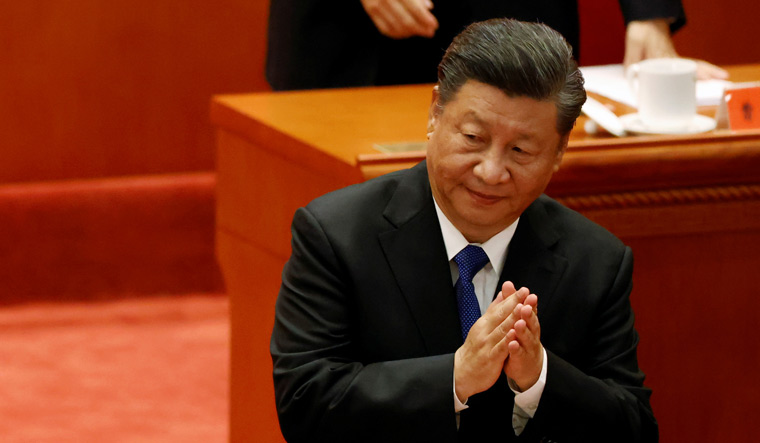A few days after the announcement that both China and Bhutan had firmed up a "three-step roadmap" for expediting negotiations to resolve the long-pending boundary dispute between the two countries, China spoke of establishing diplomatic ties with Thimphu. The two countries had, on October 14, signed a Memorandum of Understanding (MoU), 'Expediting China-Bhutan Boundary Negotiation in Beijing and Thimphu', via video link. China's Assistant Foreign Minister Wu Jianghao, who signed the pact, said he believes that the MoU will make a meaningful contribution to speeding up the negotiation on demarcation and promoting the process of establishing diplomatic ties between the two countries.
Bhutan shares an over 400-km long border with China, and the two countries have held 24 rounds of boundary talks in a bid to resolve the border dispute. China and Bhutan do not have diplomatic relations, but maintain contacts through periodic visits by officials. India and Bhutan are the two countries with which China is yet to finalise the border agreements, while it resolved boundary disputes with 12 other neighbours.
China had, earlier, reportedly laid claim to Sakteng Wildlife Sanctuary in Bhutan, stating that the territory was disputed. Bhutan then issued a demarche to the Chinese Embassy in India over China's claim over the sanctuary.
India on Thursday reacted cautiously to Bhutan and China signing the agreement. "We have noted the signing of the Memorandum of Understanding (MoU) between Bhutan and China today. You are aware that Bhutan and China have been holding boundary negotiations since 1984. India has similarly been holding boundary negotiations with China," spokesperson in the Ministry of External Affairs Arindam Bagchi said. Bhutan is crucial for India in geopolitical terms. “If they can undermine the Bhutanese neutrality, the Bhutan buffer for India goes,'' says Brigadier Arun Sahgal, Senior Fellow for Strategic and Regional Security, Delhi Policy Group had earlier told THE WEEK.
The signing of the pact came four years after the Indian and Chinese armies were locked in a 73-day standoff at the Doklam tri-junction after China tried to extend a road in the area that Bhutan claimed belonged to it.
Wu said that China and Bhutan are friendly neighbours linked by mountains and rivers. The traditional friendship between the two peoples goes back to ancient times, according to a statement posted on the Chinese foreign ministry website. "China will follow [President] Xi Jinping thought on diplomacy, practice the philosophy of neighbourhood diplomacy featuring amity, sincerity, mutual benefit and inclusiveness, and be a good neighbour, friend and partner of Bhutan on the principles of equality, peaceful coexistence and win-win results," he said.
The Chinese statement quoted Bhutanese Foreign Minister Tandi Dorji as saying that the signing of the MoU is of historical significance. "It is the result of joint efforts and sincere cooperation between Bhutan and China over the years. Bhutan will work with China to implement the MoU, unswervingly push forward the negotiation on demarcation, and be committed to strengthening bilateral relations," Dorji said.
The signing of the pact came amid continuing standoff between Indian and Chinese troops in several friction points in eastern Ladakh.
-Inputs from PTI




